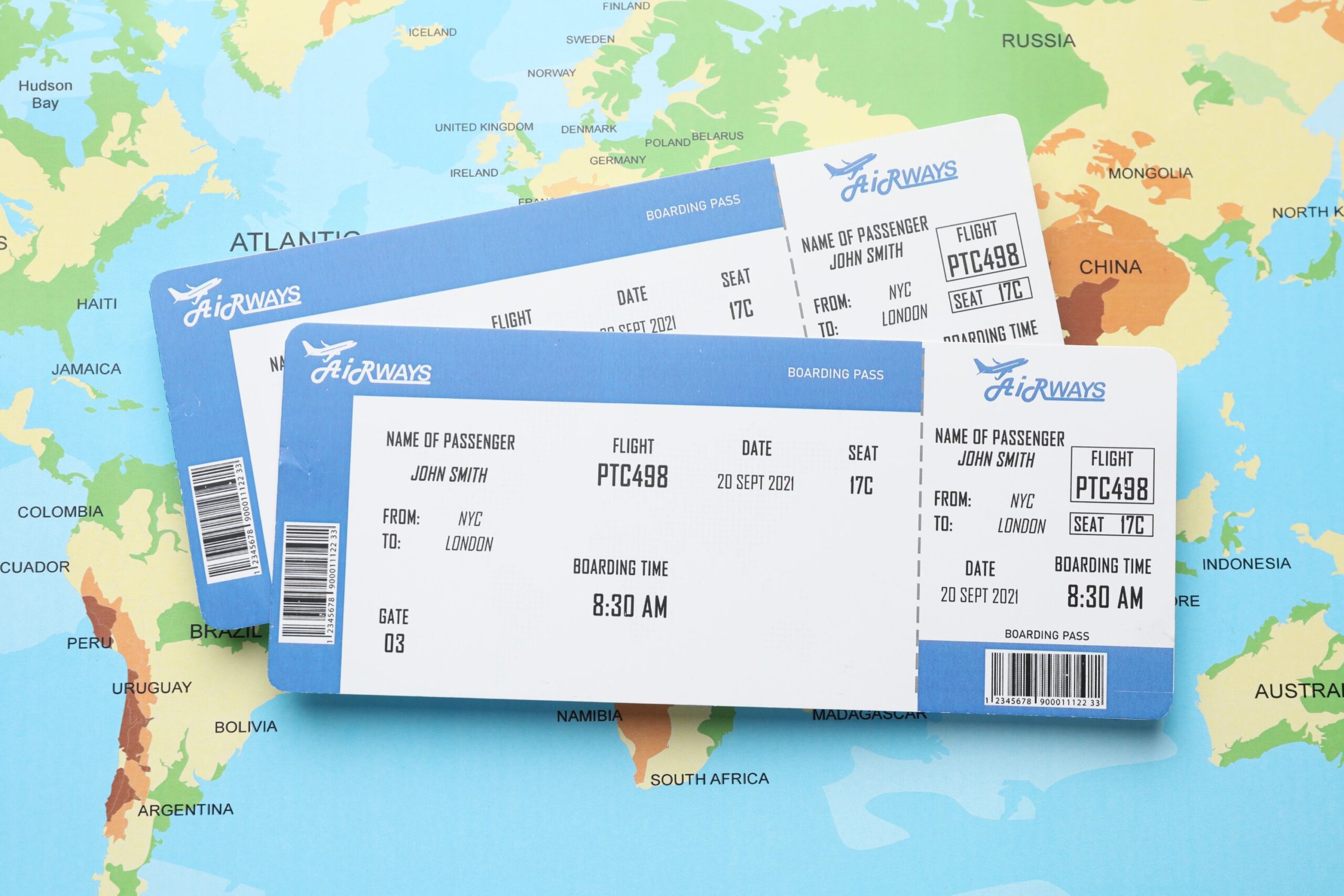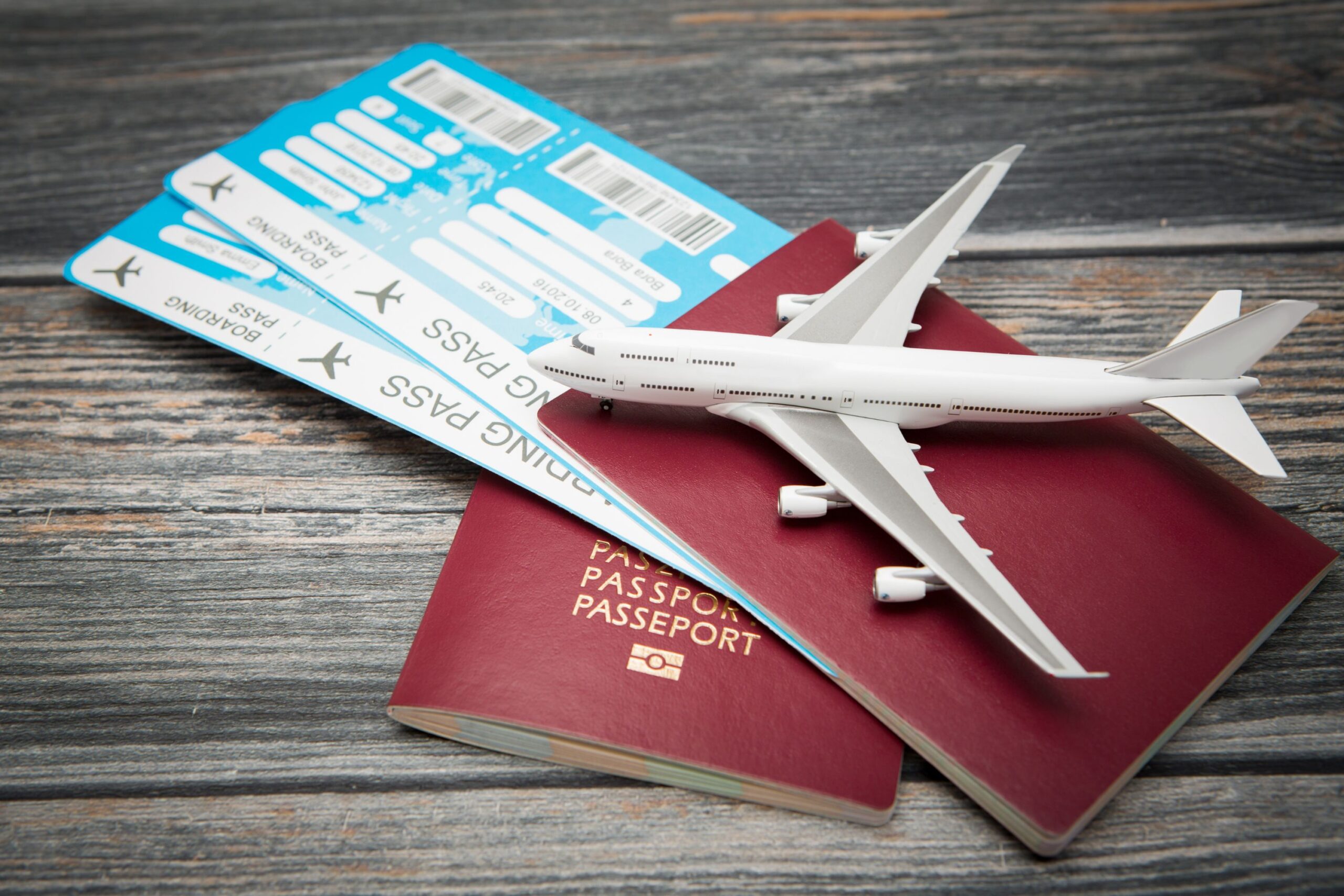When planning a trip, one of the first decisions you need to make is how to book your flight. Some travelers prefer the direct approach—going straight to the airline’s website—while others opt for a travel agent’s expertise. Both options have their benefits and drawbacks, making it essential to consider factors such as pricing, convenience, flexibility, and customer support before finalizing your ticket.
Booking Directly with an Airline
Booking a flight directly through an airline’s website has become increasingly popular, thanks to easy-to-navigate platforms and exclusive online deals. Airlines often offer incentives, such as loyalty program benefits or flexible change policies, to encourage direct bookings. Checking airline promotions directly can be beneficial if you’re looking for the lowest possible fares or specific perks, such as an extra baggage allowance.
Advantages of Booking Directly
- Access to Exclusive Deals: Many airlines provide discounted fares and additional perks to customers who book directly through their websites.
- Loyalty Program Benefits: Frequent flyers can earn and redeem miles more effectively when booking with the airline.
- Direct Customer Support: If any issues arise, dealing with the airline directly often leads to a faster resolution than going through a third-party service.
- More Control Over Booking: Changes, seat selections, and add-ons are easier to manage when dealing directly with the airline.
Disadvantages of Booking Directly
- Limited Comparison Options: Unless you manually compare prices across multiple airlines, you might miss out on a better deal.
- No Bundled Travel Packages: If you require hotels, car rentals, or travel insurance, you must book these services separately.
- Strict Cancellation Policies: Some airlines have strict policies regarding cancellations and modifications.
Booking Through a Travel Agent
Travel agents have been in existence for decades, assisting customers in securing flights, accommodations, and other essential travel services. While online booking platforms have reduced the demand for traditional agents, they remain a valuable resource, especially for complex itineraries or group travel.
Advantages of Using a Travel Agent
- Personalized Assistance: Our agents provide recommendations tailored to your preferences and needs, ensuring a seamless travel experience.
- Access to Package Deals: Some travel agencies offer discounts on bundled services, resulting in significant savings.
- Support During Travel Issues: In the event of cancellations, delays, or other travel hiccups, a travel agent can assist with rebookings and refunds.
- Expert Insights: Agents often have access to industry knowledge, unpublished fares, or deals not available to the general public.
Disadvantages of Using a Travel Agent
- Service Fees: Many agents charge booking fees, which could add to your overall travel expenses.
- Less Flexibility: Changing your booking might require going through the agent instead of directly modifying your itinerary with the airline.
- Limited Airline Choices: Some agents work exclusively with specific airlines, which limits your options.
When Should You Book Directly?
If you are confident in planning your travel and want to maximize savings, booking directly with an airline is often the best choice. This is especially true for:
- Solo Travelers: Direct booking is a practical approach if you’re traveling alone and want complete control over your itinerary.
- Frequent Flyers: Those enrolled in loyalty programs can benefit from direct bookings to maximize rewards.
- Budget-Conscious Travelers: Airlines occasionally offer flash sales, which may not be available through third-party agents.
When Should You Use a Travel Agent?
A travel agent can be invaluable in specific situations, including the following:
- Complex Itineraries: Multi-leg flights or round-the-world tickets are easier to manage through an agent.
- Business Travel: Companies often rely on agents to handle corporate travel, ensuring efficient scheduling and cost-effective solutions.
- Luxury or Group Travel: If you’re planning a honeymoon, destination wedding, or large family trip, an agent can streamline the process and secure exclusive deals.
Comparing Prices and Deals
One of the best strategies for securing the lowest airfare is to compare both options before booking. Start by searching directly on an airline’s website, then check prices through travel agencies or booking platforms. Some online travel agencies (OTAs) offer additional discounts or promo codes that airlines might not match. However, keep in mind that airlines occasionally provide price-match guarantees, allowing you to secure the best fare while still booking directly.
Navigating Cancellation and Refund Policies
A crucial factor to consider when booking a flight is the airline’s or travel agent’s cancellation and refund policy. Some airlines have strict non-refundable ticket policies, while travel agents may offer more flexible options for modifications. Always read the fine print before confirming your booking.
Customer Service: Booking Directly vs. Through a Travel Agent
Direct Booking Customer Support
When you book directly with an airline, the customer support experience largely depends on the airline’s service quality and responsiveness. You should contact the airline directly if you encounter any issues, such as a flight delay, cancellation, or baggage problem. While some airlines offer 24/7 customer support via phone, chat, or social media, others may have limited hours or slower response times.
Advantages of Airline Customer Support
- Direct Handling of Issues: Resolution can be quicker since you’re communicating directly with the airline.
- Priority Assistance for Loyalty Members: Frequent flyers or premium ticket holders often receive faster and more personalized support.
- Transparent Policies: Airlines provide clear terms for cancellations, refunds, and ticket modifications.
Disadvantages of Airline Customer Support
- Long Hold Times: Contacting an airline during peak travel periods can result in waiting hours on the phone.
- Strict Policies: Some airlines enforce non-negotiable terms, making ticket modifications costly or complicated.
- Language Barriers: International airlines may have limited support in your preferred language.
Customer Support Through a Travel Agent
Travel agents act as intermediaries between passengers and airlines. If an issue arises, your first point of contact is usually the travel agent, not the airline. This can be advantageous when dealing with flight changes, cancellations, or rebookings, as agents often have insider access to alternative options and faster resolutions.
Advantages of Travel Agent Support
- Personalized Assistance: Travel agents provide one-on-one support tailored to your needs.
- Rebooking and Emergency Help: If a flight is canceled, an agent can quickly arrange alternatives without you having to wait on hold.
- Multi-Airline Solutions: If you booked a multi-airline itinerary, an agent can coordinate adjustments without requiring you to contact each airline separately.
Disadvantages of Travel Agent Support
- Delayed Resolutions: Since the agent acts as a middleman, some issues may take longer to resolve.
- Limited Availability: Some agencies do not offer 24/7 support, which means that urgent problems may not be addressed immediately.
- Additional Service Fees: Agents may charge extra for handling cancellations or modifications.
Handling Flight Disruptions: Which Option is Better?
Travel disruptions are unfortunate, whether due to weather, technical issues, or unexpected cancellations. How you handle these disruptions varies depending on whether you booked directly or through an agent.
- If You Booked Directly: You must contact the airline for an alternative flight. Some airlines proactively rebook passengers on the next available flight, while others require you to make the necessary arrangements.
- If You Used a Travel Agent: The agent will handle rebooking on your behalf, potentially finding better alternatives than the airline initially offers.
A travel agent may be a better choice for last-minute changes, especially for travelers with limited experience handling flight modifications.
Travel Insurance: Do You Need It, and Where to Get It?
Booking Directly: Airline-Provided Travel Insurance
Many airlines offer travel insurance as an add-on during the booking process. These policies typically cover trip cancellations, medical emergencies, and loss of baggage. While convenient, airline-offered insurance plans may be more expensive than third-party options and provide less coverage.
Booking Through an Agent: Third-Party Travel Insurance
Travel agents often partner with third-party insurers to offer more comprehensive policies. These plans may also cover additional scenarios, such as trip interruptions, flight delays, and hotel cancellations. Third-party insurance can offer enhanced protection if you plan an extensive itinerary with multiple flights, hotel stays, and excursions.
When Should You Get Travel Insurance?
- For international trips, medical expenses can be costly, making travel insurance essential.
- For Expensive Trips: If you’ve invested significantly in flights and accommodations, insurance ensures you won’t lose money if your plans change.
- For Adventure Travel: Extra coverage benefits from trips involving skiing, scuba diving, or other risky activities.
Comparing Booking Flexibility: Direct vs. Travel Agent
Changing or Cancelling Flights Directly
Most airlines allow changes to bookings, but the level of flexibility depends on the fare type you purchased. Economy tickets often have strict rules, while premium tickets may allow free changes or cancellations. If you book directly, navigate the airline’s website or call customer support to modify your ticket.
- Pros of Direct Booking Changes: Instant access to change options and complete control over modifications.
- Cons of Direct Booking Changes: High change fees and complicated refund policies.
Changing or Cancelling Flights with a Travel Agent
When you book through a travel agent, they handle modifications for you. Some agencies have agreements with airlines that allow more flexible ticket changes.
- Pros of Using an Agent for Changes: Agents may have access to waivers, alternative flight options, and lower change fees.
- Cons of Using an Agent for Changes: Potential service fees and processing delays.
Last-Minute Bookings: Should You Go Direct or Use an Agent?
Booking Directly for Last-Minute Flights
If you need to book a flight on short notice, checking directly with the airline can be the quickest option. Many airlines update their fares in real time, and you can sometimes find last-minute deals, especially for flights with available seats. However, prices for urgent bookings tend to be higher than advance fares.
Pros of Direct Booking for Last-Minute Flights
- Instant Confirmation: Booking through an airline’s website ensures immediate ticket issuance.
- Real-Time Availability: You can see available seats and compare cabin classes directly.
- Loyalty Perks: If you’re a frequent flyer, you may have access to last-minute upgrade offers or exclusive discounts.
Cons of Direct Booking for Last-Minute Flights
- Higher Fares: Airlines often increase prices for last-minute bookings.
- Limited Payment Flexibility: Some airlines require full payment upfront, leaving no room for flexible payment options.
- Strict Ticket Rules: Change and cancellation policies may be less favorable for last-minute fares.
Using a Travel Agent for Last-Minute Flights
Travel agents have access to consolidated fares and industry connections, which can help secure better rates on last-minute bookings. If you are flexible with your departure time and airline, an agent might be able to find a deal that isn’t advertised online.
Pros of Using a Travel Agent for Last-Minute Flights
- Access to Unpublished Fares: Agents can sometimes offer discounted rates that aren’t available to the public.
- Alternative Routes: If direct flights are too expensive, an agent may suggest creative routings to save money.
- Multi-Airline Coordination: An agent can arrange flights across different carriers with minimal hassle for complex itineraries.
Cons of Using a Travel Agent for Last-Minute Flights
- Service Fees: Some agents charge extra fees for urgent bookings.
- Limited Availability: Agents may not always have access to all airlines or fare classes.
- Longer Booking Process: Depending on the agency, securing a ticket might take longer than booking directly.
Discounts and Fare Classes: Which Booking Method Offers Better Value?
Direct Booking: Airline Sales and Loyalty Programs
Many airlines run periodic sales, offering discounted tickets on specific routes. If you book directly, you can take advantage of these promotions. Additionally, frequent flyer programs offer opportunities for discounted or upgraded flights, making direct booking more appealing for frequent travelers.
When Direct Booking Provides the Best Value
- Flash Sales: Airlines occasionally offer time-sensitive discounts available exclusively through their websites.
- Mileage Redemptions: If you have accumulated miles, booking directly allows you to redeem them for flights, seat upgrades, or extra baggage.
- Price-Match Policies: Some airlines offer price-match policies, allowing you to compare fares and ensure you get the best deal when booking directly.
Travel Agents: Bundled Deals and Negotiated Rates
Travel agents, particularly those specializing in vacation packages, often have negotiated fares unavailable online. This is especially useful for travelers booking flights along with hotels, car rentals, or excursions.
When Travel Agents Offer the Best Value
- Group Discounts: Agents can sometimes secure lower per-person rates if you’re traveling with multiple people.
- Corporate Travel: Business travelers may benefit from pre-negotiated corporate fares with added perks.
- All-Inclusive Packages: If you require flights, accommodations, and other services, a travel agent may be able to find a better overall deal.
Online Travel Agencies (OTAs): A Middle Ground?
For travelers who want the best of both worlds, Online Travel Agencies (OTAs) such as Expedia, Kayak, and Google Flights provide a middle ground between booking directly and using a traditional agent.
Benefits of Using an OTA
- Price Comparisons: Online Travel Agencies (OTAs) aggregate fares from multiple airlines, making it easy to compare options.
- Combo Discounts: Some platforms offer discounts when booking flights, hotels, or rental cars.
- Flexible Search Options: OTAs can show fare variations across multiple days if your dates are flexible.
Drawbacks of Using an OTA
- Complicated Customer Service: If you need to make changes, you often have to go through the OTA rather than dealing with the airline directly.
- Limited Refund Options: Some online travel agencies (OTAs) sell non-refundable tickets at lower rates, making cancellations difficult.
- Delayed Updates: Flight schedule changes might not be communicated as quickly as with a direct booking.
Best Booking Method Based on Travel Type
Solo Travelers
For solo travelers seeking the lowest fares and maximum flexibility, booking directly with an airline or using an online travel agency (OTA) for price comparisons is often the best option.
Family Travel
Families may benefit from travel agents who can help coordinate multiple ticket purchases, seat assignments, and travel insurance for added peace of mind.
Business Travelers
Business travelers who require flexibility and last-minute bookings may find the best value in corporate travel agencies or direct airline bookings with premium fare options.
Luxury Travel
Those seeking a premium experience may benefit from an agent specializing in luxury travel, as they can secure VIP perks, access to lounges, and seamless transfers.
FAQs About Booking Flights: Direct vs. Travel Agent
How do airlines and travel agents set their prices?
Airlines adjust ticket prices based on demand, availability, and seasonality. Travel agents may have access to negotiated fares or bulk discounts, which can sometimes offer lower prices than booking directly.
Do airlines offer better deals than travel agents?
Airlines sometimes run exclusive promotions, especially for loyalty program members. However, travel agents may have access to package deals or unpublished fares that airlines do not list on their websites.
Can a travel agent assist me in obtaining a refund if I need to cancel my flight?
It depends on the booking terms. Some travel agents offer refundable fares or trip protection, while others may follow the airline’s strict refund policies. Always check the cancellation terms before booking.
Is it easier to change flights if I book directly with an airline?
Yes, changing a flight is often simpler when booked directly. Airlines provide self-service options for modifications, while travel agents must handle changes on your behalf, which may involve additional fees or delays.
Do travel agents charge service fees?
Many travel agents charge booking fees, especially for complex itineraries. However, some waive these fees if you book a complete package, including flights, hotels, and tours.
Can I earn airline miles when booking through a travel agent?
Most airlines allow you to collect miles on flights booked through an agent, but some fare classes may not be eligible for rewards. Always confirm before booking.
Are online travel agencies (OTAs) reliable for booking flights?
OTAs can be an excellent tool for comparing fares, but their customer service is not always as responsive as direct airline support. Some online travel agencies (OTAs) also have stricter refund policies, so it’s essential to read the fine print.
Do airlines match travel agent prices?
Some airlines offer price-matching guarantees, enabling you to secure the best available fare when booking directly. However, not all airlines provide this service, so it’s best to compare prices before making a final decision.
When is the best time to book flights for the lowest prices?
Booking at least 1-3 months in advance typically yields the best rates for domestic flights. Booking 3-6 months ahead for international travel often results in lower fares. Last-minute deals are possible, but they are less common.
What should I do if my flight gets canceled?
If you booked directly, contact the airline immediately for rebooking options. If you used a travel agent, they should assist you in securing an alternative flight or a refund. Having travel insurance can also help cover unexpected cancellations.
Can I mix direct and agent bookings for different parts of my trip?
Yes, some travelers book flights directly with airlines and use travel agents for accommodations, tours, and other ground transportation services. This approach offers flexibility while leveraging expert travel planning.
Which booking method is best for long-haul or multi-city flights?
Travel agents can often secure better connections and fares for long-haul or multi-city itineraries. They can also help navigate visa requirements and layover durations to optimize your journey.
Booking flights requires weighing multiple factors, including pricing, flexibility, customer support, and perks. Whether you book directly or work with a travel agent, understanding the pros and cons of each option will help you make an informed decision for your next trip.




